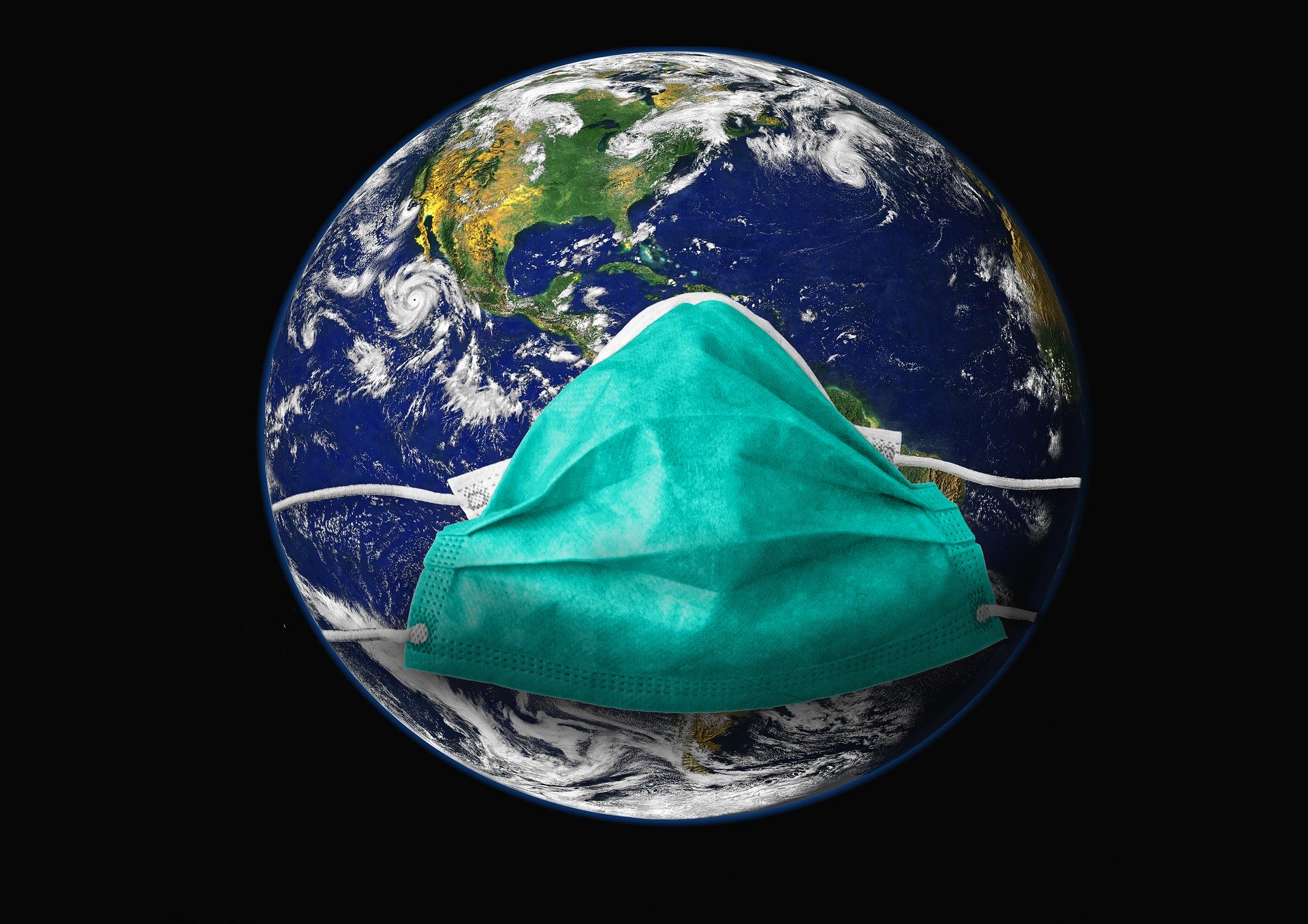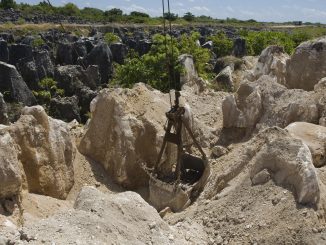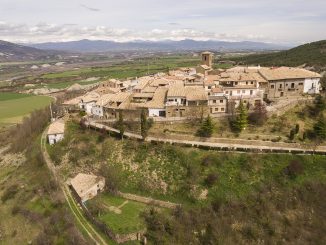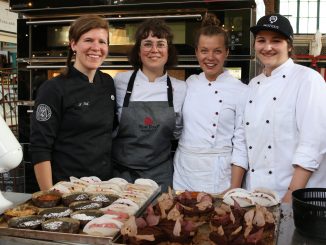
With Covid-19, our world has changed utterly. What can we learn from our recent past, and from interesting movements and moments now, to help us adjust to and cope with the present and future? With Oliver Moore.
When my father’s mother died, I put my hand on his shoulder and stood there awkwardly – back then as a teenager, I knew no other way. Ireland has however changed over the decades. People had become more emotionally honest and expressive. So, in recent years, I hugged so many people as a normal part of life, from casual meetings to seasonal celebrations, that it became second nature.
In many ways we’d become quite affectionate societies: while some kissed on the cheek or shared a handshake, many others hugged in a way their parents’ generation would never ever continence.
Now, and instantly, there is an invisible force-field between me and so many I have casually held near and dear. Tearful emotions are heightened, as realisations and revelations unfurl, yet we cannot even step towards each other.
It took decades for Irish people to get comfortable with each other to this level. There hasn’t even been time, or a good way, to mourn what we’ve lost so far.
This is but one of the many significant changes we’ve seen in recent days and weeks – economic collapse, pandemic, and an inability to even physically hold one another through it all.
Old certainties are wilting away. This pandemic is ushering in radical ideas and realities: libertarians for state support, centrist governments commandeering private hospitals for public use, variations of universal basic income, instantly acceptable and part of how states function
But where I live and now must stay, in Cloughjordan ecovillage, there are 67 acres on the edge of a small town. We have our own veg farm, so we’ve had to comprehensively and rapidly reassess and adjust our veg supply system. We have had to establish newly formed family units of workers banding together on the farm in separate areas – tunnels, fields, packing, distribution – and self-isolating as family units off farm in their own houses.
This has been tough for them as some are newly here – in Ireland. Our distribution itself has been adjusted too – rapidly and comprehensively. We collect our veg from a large drop off point, but don’t currently provide individualised bags. We have a take-what-you-need system.
So this week, each person sanitises their hands upon the more regulated entry times, or wears disposable gloves going in and out; there is a direction of travel; a limit on the number of people in there; priority access for high risk people; a home delivery option; and volunteers on hand to help with access and hand washing.
Next week, we may have a different system – this is rapidly evolving. Helping to organise this has taken up most of my week. But owning your own farm is so important now. Its spring – connect up with a local farmer or grower. Providing food is, after all, something of a front line activity in a crisis.
Transition Towns and Food Sovereignty
Beyond the locale, there is much to learn from movements of the recent past and now.
What did the transition towns movement tell us? This movement has been busy beavering away, mapping out how to cope in all the important areas, as if there was a sudden shock to the system. In their case, it was an abrupt end to oil supply.
In what already seems like an epoch ago, we held a vibrant public event in Cloughjordan called Feeding Ourselves. Just three weekends ago was a different time: brimming, bustling, very engaged and most of all, full of people interacting with each other.
There was a moment, when we were in a lovely wee pub in the town, Maura Graces, when I looked around and saw everyone in the room deeply, deeply engaged in animated conversation. It was a moment in time, when it all seemed to click. We were there. It was happening.
I already really miss those days.
Transition and Food Sovereignty featured at Feeding Ourselves.
The transition towns movement, which can be said to have started in Kinsale in the south west of Ireland, forecast a resilient town in a context of a reduced or rejected fossil fuel supply. It mapped out a transition towards a sustainable future in the areas of waste, housing, energy, food, transport, waste, youth, health, tourism and education/community awareness. The Kinsale Energy Descent Action Plan has been downloaded many times the world over, and will be again in the days and weeks ahead.
Now Transition Kerry in many ways shows the way. Check out this great video, to warm your heart, of Thomas O Connor of Manna Organic farm and shop .He’s central to Transition Kerry.
The food sovereignty movement too has shown us how to make a region self-sustaining, while showing solidarity with others further afield.
These local sustainability movements have been overshadowed by the scale and specter of a global agri-food exporting economy. Nevertheless, they offer valuable lessons in how we might move forward now, in what is rapidly becoming an altered future.
According to the Food Sovereignty proclamation, signed by dozens of organisations in 2016 “Food sovereignty is a global, regional and local framework which imagines a better way of organizing our food and agricultural systems from the bottom up… it provides a vital tool to help communities draw the links between nature, health, human survival and livelihoods, while helping to educate citizens in the political and economic impacts of the food system at a local and global level.”
This might sound a little wordy, but when we see how vulnerable the global agri-food system is to shocks, how at various stages in the last month the number of ships leaving China has halved, it also makes sense to have the local ability to feeding ourselves as a community.
Seed sovereignty is core to food sovereignty – in other words, local communities feeding themselves with well adapted seeds that are open pollinated and free to swap and share.
How now is that idea?
As the economy and incomes decline, being able to grow your own food from shared, open pollinated seeds will become more important.
The Food Sovereignty session at Feeding Ourselves expressed concern at the global supply chain and where it can fall down – the emphaisis was the fodder crisis and extreme weather, as Covid-19 was only emerging as a realtime concern.
Community resilience is an interesting way to encapsulate this approach. The GIY – grow it yourself – movement sent the following message to its supporters this week.
“Will food growing put food on the table in a worst-case scenario? Well, yes. But we’d be overselling it to say it’s an easy, quick or comprehensive fix. Most of us don’t have the time, space or know-how to do so at any serious level. But that doesn’t matter for now. On a basic level, growing and cooking our own food can help us feel more in control, and is one of the most elemental and simplest of pleasures available to us…
Amidst all the awfulness, there is a shred of comfort in knowing it’s spring out there, and nature is waking up from her winter slumber. We can put a seed in the soil, and it will grow. It’s a defiant act of hopefulness, of optimism.”
In the coming days and weeks ARC will be talking to farmers and others in the food system about supply chain issues – there is lots of demand, but how is accessing inputs and managing personnel? How are farmers and growers adapting and adjusting? Already, organic growers we’ve spoken with are reaching out to those supplying restaurants and offering to bulk buy from them, in a show of solidarity.
There are other movements and moments too – the sufficiency paradigm from the 3rd SCAR report on 2012, involved “taking a range of relevant, realistic factors into account – such as resource availability, socio-environmental needs and impacts – when deciding how to transition towards a fit-for-purpose food system, one that judiciously produces enough, rather than overproducing unsustainably with significant waste.”
There have been other transition plans, and the EU Green Deal may be a fledgling version of this. We wrote recently of the social and solidarity economy, about how it can be the foundation of an alternative way of engaging meaningfully with each other. We expected different crises, but crises nonetheless.
Rural Dialogues | Stochastic System Collapse Part 2 – the Social and Solidarity Economy Alternative
Here, from Shareable, you can download a 178 page book – The Response: Building Collective Resilience in the Wake of Disasters – full of tough tales from disasters, but also great stories of community resilience via coops, Peer to Peer (P2P) relations, through the medium of inspiring initiatives – the kind that can really come to the fore now. Check out this person – an Emergency Disaster Manager talking about disaster collectivism, a “worldwide phenomonen…we turn to one another” as Samantha Montano puts it. Here mutual aid happens in New Orleans after Katrina.
And how about rekindling those resilience maps while we’re at it?
Degrowth, the Dark Mountain, FEASTA The Steady State Economy – all have shown us a way to see a simpler future with clarity. (Here’s a FEASTA perspective integrating our new situation into degrowth thinking.)
Now is a great time to go back to look, listen and learn from these people, to re-read them, interview them, and to plan with them a new world.
We do need to watch out for shock doctrine – an exploitation of crises by nefarious forces, who aim to get draconian emergency rules formalised and permanently in place. Sunset clauses to protect civil liberties are needed to prevent this, as there needs to be an end point to the restrictions.
Already some are too afraid to come forward for testing, such as undocumented workers. And already, rules and inspections are being weakened, while the EU’s Farm to Fork strategy is now delayed.
Lets not let these things get worse indefinitely.
Business-as-usual cannot return
Here’s what doesn’t make sense – returning to business-as-usual (BAU) when this has passed. BAU is risky due to distance, disconnection, complexity and vulnerability as we can now see so so clearly.
We cannot see a return to the old iteration of our economic system, which already gave us runaway climate change, biodiversity loss, air and water pollution, grinding poverty and rural depopulation. All are things we have needed to deal with, things which were causing severe systemic strains, bad now and worse into the future. Already, its clear we need to better understand the impact of our relationship with the living world, how our changes of and encroachments into nature relate to this and other epidemics.
There is, incredibly, good news from South Korea on a Green Deal, and mixed news from China there are signs of a return to a short-cut low regulation economic return to catch back up, following initial positive news on pollution.
We will have a simpler life, with more sadness at times for sure. It will be undeniably tough, often. But farming and food, rural spaces and environment, will continue to be core to our experience – and perhaps more so than has been acknowledged heretofore.
Somehow, we need to rebuild, and build better. Our friends at IDDRI put it like this:
“Finally, with the crisis, we are all experiencing concrete individual experiences of a very deep social, psychological, moral and philosophical questioning about our lifestyles and our consumption patterns, about what is essential and what is incidental.
This is particularly true for our food, which is at the heart of the concerns of every household in a crisis situation, but which is also the subject of debate in the family or on social networks, at the crossroads of our incompressible material needs, the health and environmental traceability of products and the fundamental social dimension of meals eaten together.
Lived solely as an experience of rationing, this crisis would not have all the depth that it is however so essential to give it, based on the very concrete need for human and social contact, of which we are the most rationed at this time, and which is currently felt by everyone: the relationship to our material needs and to our human and social needs will also emerge fundamentally changed from this crisis, and has all the potential to help us collectively re-discuss the essential priorities, those that we must cherish, and those for which we can envisage other ways of accessing them.
By discussing them now, we may have the chance to change the way we organise our societies to live together.”
We need to grieve. To mourn. And to band together in novel ways, digital and otherwise, and express our solidarity with one another. As we do in times of crisis, as Rebecca Solnit and others have shown. We will somehow build, upon these strange and unexpected foundations, a better world than the one we have now.







1 Trackback / Pingback
Comments are closed.